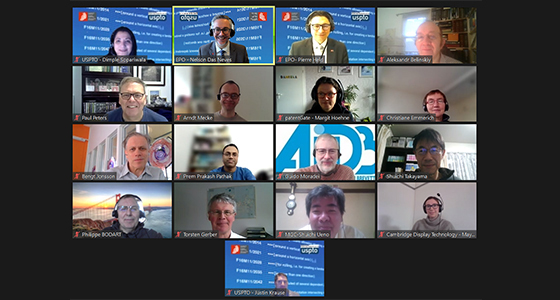[ad_1]
24 March 2023
The 10th anniversary of
the Cooperative Patent Classification (CPC) system was today celebrated at an
annual meeting with industry, at which the EPO President delivered an opening
address.
In a message to more than 30 participants representing large
companies, patent information user groups and commercial providers,
President António Campinos hailed the CPC as “the most refined, complete, and powerful
classification system in the world”. He also underscored the importance of CPC
to patent quality owing to the improved accuracy and search speed it enables.
To mark the milestone, the President unveiled developments in the EPO’s work
relating to AI-assisted classification, the full details of which will be made
available in a public launch later this year.
Having started out as a bilateral exercise, the CPC system now comprises 38
participating offices – with Latvia as its latest member – representing a
combined population of 2.15 bn people.
Today it supports the daily work of some 25 000 patent examiners.
On average, for every
second day in the past decade, a collaborative CPC project has been completed,
and around 850 patent families are reclassified daily.
The President concluded his address by praising the CPC network for its
achievements:
“Through the CPC, we have […] a system which provides order and stability in a
world that is increasingly complex and fragmented. It is more than just a
classification system. It’s a symbol of international collaboration and
progress.”
During the all-day meeting, presentations covered the system’s current
situation, upcoming changes and future developments, as well as a Q&A at
the end.
Launched in 2013, the CPC is an extension of the
WIPO-administered International Patent Classification (IPC) and is jointly
managed by the EPO and the USPTO. It is divided into nine sections, A-H and Y,
which in turn are subdivided into classes, sub-classes, groups and sub-groups.
There are approximately 260 000 classification entries.
Further information:
[ad_2]
Source link





















Discussion about this post